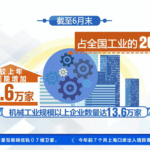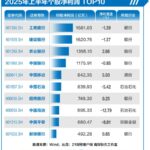On the 11th, it was learned from the Ministry of Finance that to ensure the smooth implementation of the “Value-Added Tax Law of the People’s Republic of China,” the Ministry of Finance, in collaboration with the State Taxation Administration, has drafted the “Implementation Regulations of the Value-Added Tax Law of the People’s Republic of China (Draft for Comments),” which is now open for public feedback.
Value-added tax is the largest tax category in China. At the end of last year, the 13th meeting of the Standing Committee of the 14th National People’s Congress voted to pass the Value-Added Tax Law, which will take effect on January 1, 2026.
“The Implementation Regulations of the Value-Added Tax Law serve as the foundational supporting administrative regulations for the Value-Added Tax Law. Together with the Value-Added Tax Law and normative policy documents, they form the legal framework for value-added tax in China, providing crucial support for its implementation.”
The “Implementation Regulations of the Value-Added Tax Law of the People’s Republic of China (Draft for Comments)” consists of six chapters and 57 articles, covering general provisions, tax rates, taxable amounts, tax incentives, collection and administration, and supplementary provisions. It further clarifies the relevant provisions of the Value-Added Tax Law, specifies matters delegated to the State Council, enhances the certainty and operability of the tax system, and establishes a cohesive value-added tax framework.
It was noted that many countries internationally adopt a legislative model for value-added tax (sometimes referred to as goods and services tax) where the Value-Added Tax Law serves as the overarching framework, supplemented by implementation regulations and specific operational rules. For example, countries like the UK, Australia, and Switzerland have both a Value-Added Tax Law and corresponding implementation regulations.
The draft adheres to the principle of statutory taxation and reflects the concept of high-quality development. “For instance, it elaborates on the standards for tax incentives supporting agriculture, education, healthcare, and elderly care as outlined in Chapter 4 of the Value-Added Tax Law. It also stipulates that the scope, standards, conditions, and tax administration measures of such incentives should be publicly disclosed in a timely manner, which supports high-quality economic and social development and protects taxpayers’ legitimate rights and interests.”
The draft interprets and elaborates on the relevant clauses of the Value-Added Tax Law, improving the certainty and operability of the tax system. For example, it optimizes the rules for input tax credits on non-taxable transactions and long-term assets like real estate, aligning with both the fundamental principle of tax deduction consistency and international practices. It also clarifies relevant administrative provisions to adapt to new developments in the economy and society.
“The Implementation Regulations provide a detailed interpretation of the term ‘consumption of services and intangible assets within the territory’ as mentioned in Article 4, Paragraph 4 of the Value-Added Tax Law.” The issue of determining the place of consumption for cross-border sales of services and intangible assets has long been a challenge in international value-added tax legislation, with a lack of effective coordination through international treaties. The draft studies and incorporates judgment rules from different countries, achieving a balance between international alignment and domestic practicality.




